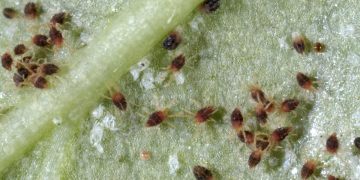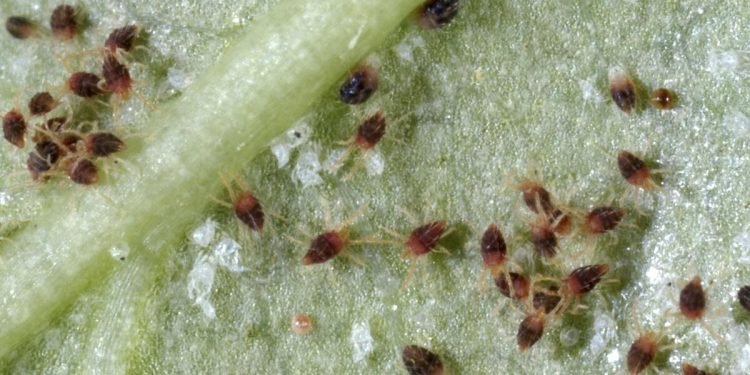The Carmine spider mite (Tetranychus cinnabarinus) is a significant pest of many crops, including cotton, fruit trees, and vegetables. These mites can cause significant damage to crops by feeding on plant cells, leading to decreased yields and even plant death. In this article, we will explore the latest strategies for controlling Carmine spider mites, with a focus on sustainable and integrated pest management practices.
Carmine spider mites are known for their rapid reproduction rate and ability to develop resistance to chemical pesticides. As a result, farmers and agronomists have turned to more sustainable and integrated pest management practices to combat these pests. One approach is the use of predatory mites, such as Phytoseiulus persimilis, which feed on the Carmine spider mites and can help reduce their populations. Another strategy is the use of biological pesticides, such as Beauveria bassiana, which infects and kills the mites while posing no harm to the environment.
In addition to these methods, farmers can also take preventative measures, such as maintaining healthy plants, reducing water stress, and using reflective mulch to repel the mites. Monitoring for Carmine spider mites and implementing control measures early on can also help prevent infestations from getting out of control.
As Carmine spider mites continue to pose a threat to crops worldwide, it is crucial for farmers and agronomists to adopt sustainable and integrated pest management practices. By doing so, we can reduce the use of harmful chemical pesticides and protect our crops and the environment.
#CarmineSpiderMites #IntegratedPestManagement #SustainableFarming #PredatoryMites #BiologicalPesticides #CropProtection #FruitTrees #Vegetables #Cotton #PhytoseiulusPersimilis #BeauveriaBassiana #Farmers #Agronomists #CropDamage #PreventativeMeasures #EnvironmentallyFriendly































